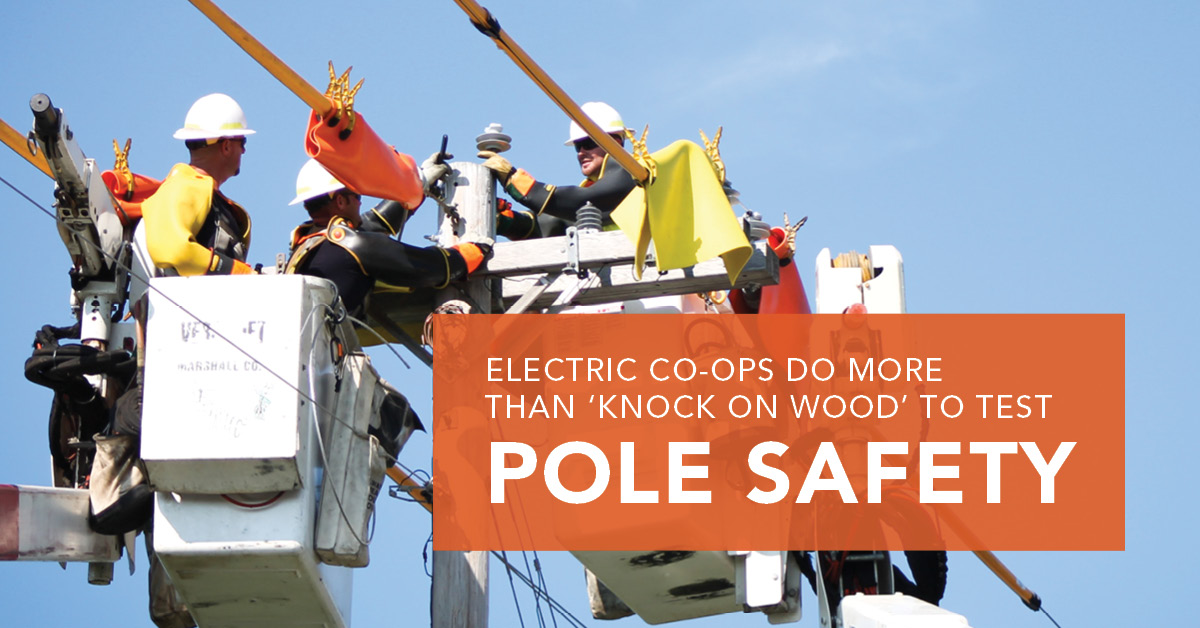
Born with a natural curiosity, children are always exploring, asking questions and trying new things to understand the world around them. Unfortunately, that curiosity can be dangerous – and even deadly – when it comes to electricity.
“There are 400 deaths and 4,400 injuries from electrical hazards each year,” said Tom VanParis, CEO of Indiana Electric Cooperatives. “Education and adult supervision are the main ways to help reduce your child’s risk of an electrical accident.”
With summer break just beginning, children of all ages will spend the next few months entertaining themselves. Whether they are keeping cool inside or soaking up some vitamin D outside, they are bound to run into trouble. Your cooperative, though, wants to be sure they are safe from electrical hazards. Keep your children safe by teaching them the rules of outdoor and indoor electrical safety.
Outdoor Electrical Safety Rules:
- Do not climb trees near power lines or climb utility poles, transmission towers or fences around electrical substations.
- Keep electrical cords away from water.
- Never touch an electrical pole or wire that has fallen to the ground.
- Watch out for thunderstorms! If you can hear thunder, you can be struck by lightning.
Indoor Electrical Safety Rules:
- Do not overload an extension cord with too many plugs.
- Teach older kids how to safely plug in and unplug a cord.
- Remind children that water and electricity do not mix.
- For younger children, install safety caps on outlets.
It is also important for children to know how to avoid electrical dangers, but also how to respond to an electrical injury. The most important rule is to never touch a victim who is still connected to a power source. The same current could travel to their bodies and injure them as well. If they can, either unplug or turn off the switch to the power supply. Inform children to never touch a live wire, even if it does not look dangerous. Lastly, be sure they know how to call 911 in an emergency if they ever need help.
If you have questions about keeping your family safe from electrical hazards, contact your electric cooperative. Help keep your children safe, wherever they are, by applying a few safety rules to their summer routine.
Sources: Electrical Safety Foundation International, Complete Electrical Solutions
Know what to do in case of…
Electrical Fire – Turn off the power, if possible. Never throw water on an electrical fire! Use a multipurpose fire extinguisher or one that is rated for electrical fires.
Downed Wire – Stay away from the wire. Do not touch anything or anyone that is touching it.
Electrical Storms – Get inside. Stay out of the shower or bathtub. If you cannot get inside, go to low ground and crouch down. Do not use electrical appliances or the telephone. Avoid trees and other tall or metal objects. Stay out of water.
Electrical safety rules for beginners
Electrical safety can come in many forms and in many places. Share these simple safety rules with your kids. Whether they are heading outside or staying indoors, these tips could save their lives!
Outdoor Electrical Safety Rules:
- Do not climb trees near power lines. Better yet, never climb utility poles, transmission towers or fences around electrical substations.
- Keep electrical cords away from water. Charge your phones inside while keeping cool by the pool!
- Never touch an electrical pole or wire that has fallen to the ground.
- Watch out for thunderstorms! If you can hear thunder, you can be struck by lightning.
Indoor Electrical Safety Rules:
- Do not plug too many things into an extension cord. Are your gaming consoles, computer and phone charger all on one extension cord? It might be time to add more outlets in your home!
- Teach older kids how to safely plug in and unplug a cord – look out for exposed wiring and never yank on cords.
- Remind children that water and electricity do not mix. Never use electronics in the bathtub or shower, and never touch appliances with wet hands.
- For younger children, install safety caps on outlets to avoid them touching or inserting something into one.





